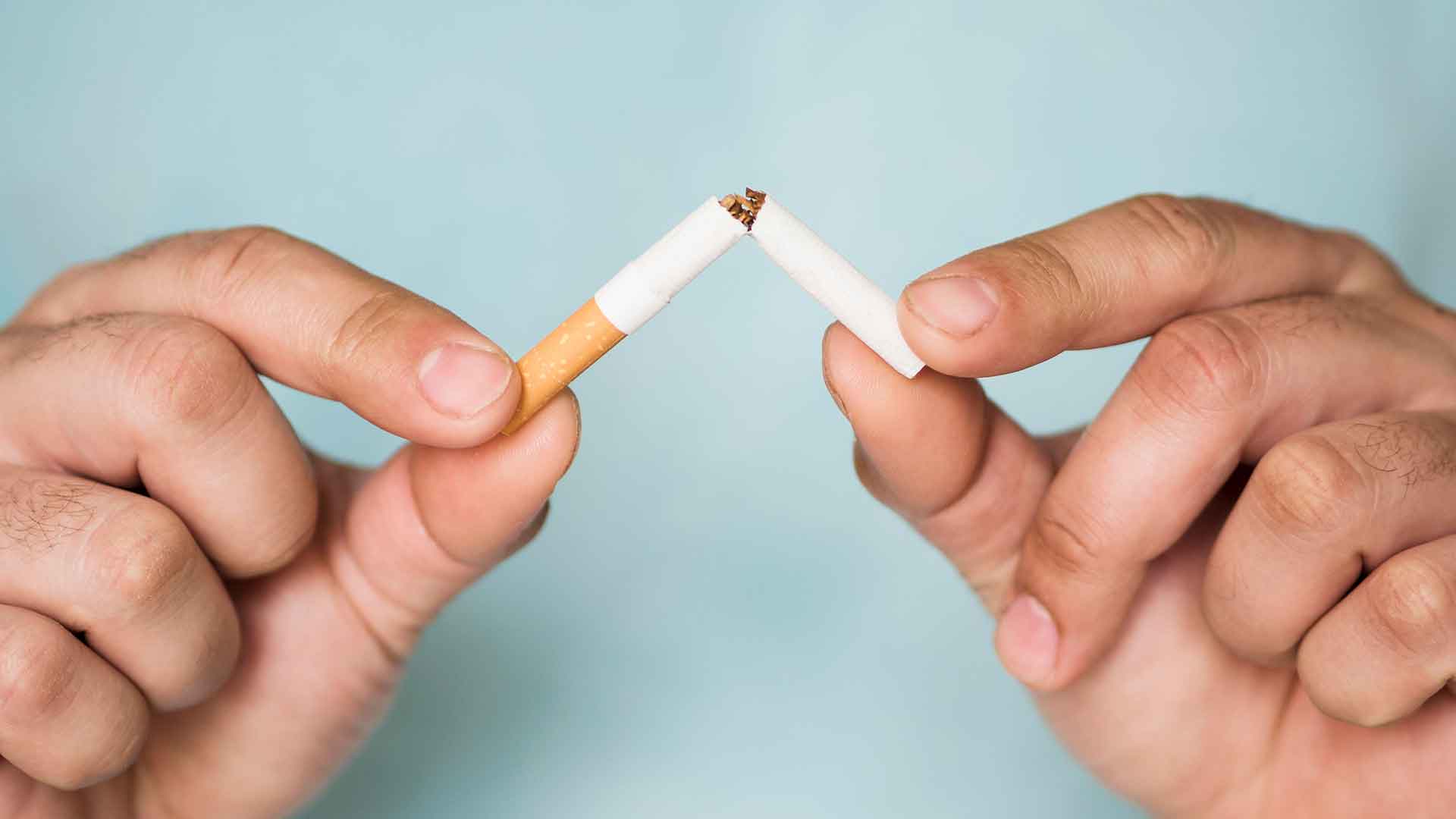Help with Stop Smoking in Harlesden & Willesden Area
According to latest Studies, you’re four times more likely to stop smoking with professional help. If you are looking to quit smoking in Harlesden, Willesden or any other area in London, Chana Chemist branches offer Expert advice and treatments that will aid you in giving up smoking.
What to expect in this Blog Post?
In this post, we discuss the harmful effects of smoking, why it is hard to stop smoking, how to quit smoking, various ways to quit smoking, where to get help and some useful stop smoking tips.
Harmful effects of smoking
Smoking is a major preventable cause of death worldwide, and giving up smoking significantly reduces the risk of dying from tobacco-related diseases such as heart disease and lung cancer.
Circulation
Video illustration by NHS Smokefree campaign.
Smoking allows poisons from the tar in your cigarettes enter your blood. These poisons in your blood make your blood thicker, and increase chances of blood-clot, increase your blood pressure and heart rate, narrow your arteries, reducing the amount of oxygen rich blood circulating to your organs.
Stomach
Smoking can cause stomach cancer or ulcers. Smoking can weaken the muscle that controls the lower end of your gullet (oesophagus) and allow acid from the stomach to travel in the wrong direction back up your gullet causing reflux.
Research has shown that if you regularly smoke 10 cigarettes a day, you are one and a half times more likely to develop kidney cancer compared with a non-smoker. If you smoke double the amount, the risk also doubles.
Heart
Smoking damages your heart and your blood circulation, increasing the risk of conditions such as coronary heart disease, heart attack, stroke, peripheral vascular disease (damaged blood vessels) and cerebrovascular disease (damaged arteries that supply blood to your brain).
Carbon monoxide from the smoke and nicotine both put a strain on the heart by making it work faster.
Good news is that after just one year of stop smoking, the risk is reduced of these diseases is reduced by half. After stopping for 15 years, your risk is similar to that of someone who has never smoked.
Skin
Smoking can affect your skin by reducing the amount of oxygen that goes there. So the more you smoke, the quickly your skin ages and looks grey and dull.
Smoking prematurely ages your skin by between 10 and 20 years, and makes it three times more likely you’ll get facial wrinkling, particularly around the eyes and mouth.
When you stop smoking, the skin will stop from deteriorating further.
Bones
Smoking can cause weakness in your bones and your bones can become brittle. The risk is higher in Women in particular.
Brain
Smoking can increase your risk of having a stroke by at least 50%, which can cause brain damage and death.
Smoking can increase your risk of a stroke is by increasing your chances of developing a brain aneurysm. This is a bulge in a blood vessel caused by a weakness in the blood vessel wall. This can rupture or burst which will lead to an extremely serious condition known as a subarachnoid haemorrhage.
Within two years of stopping smoking, your risk of stroke is reduced by half and within five years it will be the same as a non-smoker.
Lungs
Your lungs can be very badly affected by smoking. Coughs, colds, wheezing and asthma are just the start. Smoking can cause fatal diseases such as pneumonia, emphysema and lung cancer. Smoking causes 84% of deaths from lung cancer and 83% of deaths from chronic obstructive pulmonary disease (COPD).
People with COPD have difficulties breathing, primarily due to the narrowing of their airways and destruction of lung tissue. Typical symptoms of COPD include: increasing breathlessness when active, a persistent cough with phlegm and frequent chest infections.
Mouth and throat
Smoking causes bad breath and stained teeth, cause gum disease and damage your sense of taste.
The most serious damage smoking causes in your mouth and throat is an increased risk of cancer in your lips, tongue, throat, voice box and gullet (oesophagus). More than 93% of oropharyngeal cancers (cancer in part of the throat) are caused by smoking.
You can greatly reduce your risk of developing head and neck cancer once you stop smoking.
Reproduction and fertility
Smoking can cause male impotence, as it damages the blood vessels that supply blood to the penis. It can also damage sperm, reduce sperm count and cause testicular cancer. Up to 120,000 men from the UK in their 20s and 30s are impotent as a direct result of smoking, and men who smoke have a lower sperm count than those who are non-smokers.
For women, smoking can reduce fertility. One study found that smokers were over three times more likely than non-smokers to have taken more than one year to conceive. The study estimated that the fertility of smoking women was 72% that of non-smokers.
Smoking also increases your risk of cervical cancer.
Why quit smoking is so hard?
Tobacco contains addictive nicotine. Nicotine is just as addictive as other ‘harder’ drugs like to heroin or cocaine.
Cigarettes give you a fast nicotine hit. It takes less than 20 seconds for the drug to reach your brain from inhaled cigarette smoke. NRT can deliver nicotine, but not as quickly as that. Using other sources of nicotine to wean yourself off tobacco is far safer than continuing to smoke.
How to quit smoking?
Stop smoking best way
Preparation is key to successfully stopping smoking. Your plan have a mix of things that work for you, including:
- thinking about why you smoke
- focusing on how to manage situations in which you used to smoke
- thinking about your reasons for stopping
- setting a quit date
- medication
- support from friends and family
Understanding why you smoke
You might have started smoking in your teens, maybe because your friends smoked, or because you wanted to look grown up or cool. For others it could be during college or university, starting a job or being in a social circle where everyone smokes. Alternatively, you could have started for no clear reason at all.
Those circumstances might no longer be part of your life and hence understanding that will help you in the process.
Planning
You’re more likely to be successful in your attempts to quit smoking if you plan ahead. This includes preparing and working towards a specific quit date.
Some people find it easier to quit smoking when they’re away from their normal routine on holiday. It’s important to pick a day, mark it on the calendar and start your quit attempt then for the best chances of success.
Stop Smoking Medicine
Nicotine is addictive, and willpower alone might not be enough. Give yourself a better chance of success by using stop smoking medication.
If you want to stop smoking, taking varenicline (trade name Champix®) is likely to more than double your chance of success. Varenicline mimics the effect of nicotine on the body. Therefore, it both reduces the urge to smoke and relieves withdrawal symptoms.
Motivation: Think about what you’ll gain by stopping
The desire to stop smoking for good can be a great source of motivation. Make sure you’ve the right support in place to help you stop successfully. Move from thinking about why you smoke, to focusing on becoming a non-smoker.
Everyone has personal reasons for wanting to quit.
Think of your top 3 reasons for quitting, write them down and put them in a place where you’ll see them every day – perhaps on your fridge, saved on your phone or in your wallet.
Stop smoking by hypnosis
During hypnosis for smoking cessation, a patient is often asked to imagine unpleasant outcomes from smoking. For example, the hypnotherapist might suggest that cigarette smoke smells like truck exhaust, or that smoking will leave the patient’s mouth feeling extremely parched.
- Smoking poisons the body
- You need your body to live
- You should respect your body and protect it (to the extent you’d like to live)
The hypnotherapist teaches the smoker self-hypnosis, and then asks him or her to repeat these affirmations anytime the desire to smoke occurs.
It can be effective for some people but not for others. Hence it is not the most widely recommended method for stop smoking.
Quit smoking with vapor
The evidence shows that a combination of pharmacological treatment and behavioural support produces the best result for smoking cessation. However, some smokers may not be able to quit, hence switching to vaping helps them quit. If asked about vaping, health care professionals can explain that it is not an approved or recommended method of smoking cessation, but it may help smokers to quit if other attempts have failed, and will be less harmful to their health than continuing smoking.
An estimated 2.9 million adults in Great Britain currently use e-cigarettes and of these, 1.5 million people have completely stopped smoking cigarettes. They carry a fraction of the risk of cigarettes and can be particularly effective when combined with extra quitting support.
Quit smoking cold turkey
Quitting cold turkey means giving up smoking all at once, without the aid of any nicotine replacement therapy (NRT) products or stop-smoking medicine.
Read more about the topic here on everyday health.
Stop smoking tips
If you want to stop smoking, you can make small changes to your lifestyle that may help you resist the temptation to light up.
Read the top 10 self-help tips to stop smoking from NHS.
How long does it take to quit smoking
It depends on everyone’s individual circumstances and willpower. It could be anything from a few months to many years. The key is to be always mindful of the fact that you have decided to be smoke free and resist the temptations whenever they arise.
Other places where you can get help with stop smoking can be found from this NHS link.






